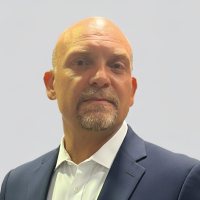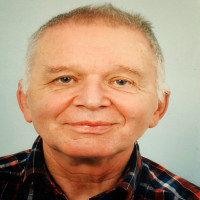Dergi Kurulları
Derginin Sahibi
Editör
Yardımcı Editör
Sorumlu Yazı İşleri Müdürü
Yayın Kurulu

Prof. Dr. Uğur Sadioğlu was born in 1983 in İzmir. He is a faculty member at the Department of Political Science and Public Administration at Hacettepe University. Currently, he serves as the Deputy Director of the Hacettepe University Local Governments Application and Research Center, a member of the Editorial Board of the Hacettepe University Journal of Economics and Administrative Sciences, the Director of the Hacettepe University Lifelong Learning Center, and the Acting Dean of the Hacettepe University Faculty of Communication. Sadioğlu graduated from the Department of Political Science and Public Administration at Hacettepe University in 2006. Between 2008 and 2010, he was a visiting doctoral researcher at Duisburg-Essen University in Germany. He obtained his Ph.D. in 2012 with a dissertation comparing local government reforms in Germany and Turkey. During 2015-2016, he served as a visiting faculty member at the Cologne Center for Comparative Politics at the University of Cologne in Germany, where he also taught courses. His main research areas include public administration theory, new trends in public administration, Turkey's administrative structure, local governance and politics, urbanization policy, urban transformation, smart cities, e-government, and development management. He has worked as a researcher on various projects, including the "Local Administration Reform Project – Ministry of Interior, 2010" and the "Neighborhood Management Research Project, TODAİE and T.C. Ministry of Development, 2012-2013," which focused on local government reforms in Turkey. He also led the "Strengthening the Social Dimension in the Preparation and Implementation of Urban Transformation Projects – T.C. Ministry of Environment and Urbanization, 2017-2018" project. Additionally, he contributed as a researcher to the TÜBİTAK 1003 Project titled "Sustainable Urban Policies: Urban Regions in Turkey from a Quality of Life Perspective." He has participated in projects on local government reforms in Germany and decentralization policies in Europe. His work includes several national and international books on Turkey's administrative structure, Turkish local governments, and local governance in Germany. Recently, he has presented numerous papers at national and international conferences and published many articles in national and international journals on local governments and public administration reform outcomes in Turkey.

 Web
Web

Ramazan Sari is an energy economist in the Department of Management at the Technical University of Denmark. His research is shaped by (i) gender, regional, and cultural differences in the acceptance of new energy technologies and policies and (ii) the economic and social aspects of sustainability, including well-being, economic growth, economic poverty, energy poverty, and energy justice. He has extensive research experience on economic growth, inequality, income distribution, energy, and environmental topics, utilizing quantitative and qualitative data in both developing and developed countries.
He has experience in coordinating, co-coordinating, and serving in many research and capacity-building projects funded by EU Horizon 2020, British Academy Newton Funds, Turkish Planning Institute, Turkish Scientific and Technological Research Council, Atomic Energy Agency of Vienna, Danida, and Horizon Europe. He is an associate editor for Humanities and Social Sciences Communications, a journal by Nature, and Oeconomia Copernicana.
I am an Associate Professor of Family and Consumer Economics and a State Specialist in Family Financial Management for the Department of Family, Youth and Community Sciences/Institute of Food and Agricultural Sciences, University of Florida.
My research program aims to examine socio-ecological factors (eg, self-efficacy, financial knowledge and education, health status, community and support network, sociocultural beliefs and norms, and climate variability) that impact individuals' financial decision-making and outcomes. Within this primary line of inquiry, my research branches into two main areas of focus: (a) the study of behavioral and psychological predictors of financial well-being among households, consumers, and farmers and (b) the application of quantitative and qualitative social and behavioral research methodologies to the context of the adoption of climate change mitigation and adaptation strategies in agriculture.
My research program has a geographical focus on the US and emerging market economies in Latin America (i.e., Brazil), South and East Asia (i.e., China and Indonesia), Eurasia (i.e., Turkey), and Africa (i.e., South Africa) . My research approach is transdisciplinary and system-oriented. Thus, I conduct much of my research as a member of multi-disciplinary teams with collaborators in agricultural and biological sciences. My research work, presentations, and collaborations have been supported by US federal agencies (e.g., US Department of Agriculture-Sustainable Agriculture Research and Education Program, US Agency for International Development, and National Science Foundation) and foreign government agencies (e.g., Colombia Ministry of Education and Brazilian Ministry of Education).
Dr Selvi Kannan holds a PhD in Human Capital & Knowledge Management from Victoria University, Australia. She has also won several Awards recognized for research and industry relationship. As a Senior Academic and Head of Industry and Community Partnerships at the University of Tasmania, Dr Kannan's research focuses on the intersection of human capital and intelligent technologies, with particular emphasis on knowledge management and the translation between human and machine capabilities.
Dr Kannan’s contributions encompass a diverse range of evidence-based methodologies, including case studies, relational research, and narrative inquiries. Her research focuses on critical areas such as organisational change, innovation, entrepreneurship, gender, and human-centered ICT. Known for its cross-industry relevance, her work has made significant contributions to both academic theory and practical applications.
In addition to her academic pursuits, Dr Kannan provides strategic advisory services and management consultancy on complex organisational issues, aiming to foster economic and social impact. Central to her approach is a commitment to managing change with a human-centered perspective, while seamlessly integrating advanced technologies. Her expertise lies in developing strategic solutions in areas such as employer-employee partnerships, knowledge-driven high-performance cultures, and the management of advanced technology alongside human capabilities.
Mike Gutter, who has an extensive track record of developing and funding partnerships and programs that benefit local communities, was named the director of Virginia Cooperative Extension and an associate dean of the Virginia Tech College of Agriculture and Life Sciences.
As an integral part of both Virginia Tech and Virginia State University, Virginia Cooperative Extension works in communities across the commonwealth to share knowledge, support businesses, and implement research that helps all Virginians. Extension operates from the campuses and out of 107 county and city offices, 11 Agricultural Research and Extension Centers, and six 4-H educational centers across the commonwealth. Read full story.

Dil Editörü
Dergiye yayımlanmak üzere gönderilecek yazılar Dergi'nin son sayfasında ve Dergi web sistesinde yer alan Yazar Rehberi'ndeki kurallara uygun olmalıdır.
Gizlilik Beyanı
Bu dergi sitesindeki isimler ve e-posta adresleri sadece bu derginin belirtilen amaçları doğrultusunda kullanılacaktır; farklı herhangi bir amaç için veya diğer kişilerin kullanımına açılmayacaktır.